ABOUT LSA
Every year, the LSA recognizes great achievements in the field of Law and Society. Each award has a Prize Committee that reviews nominations and selects winners. An LSA membership is required to submit an awards nomination. Nominations for 2025 awards are closed.
PRIZE
Harry J. Kalven, Jr. Prize
The Harry J. Kalven, Jr. Prize is awarded annually (biennially prior to 1999) for “empirical scholarship that has contributed most effectively to the advancement of research in law and society.”
Nominations are open to all forms of law and society scholarship, and from any country of origin, although copies submitted to the committee must be in English.
It is not a book award, nor is it a career achievement award, but is given in recognition of a body of scholarly work, including some portion of work having been completed within the past few years. Self-nominations are accepted.
The award carries a cash prize of $500.
Current Winner

Tom Baker – University of Pennsylvania
Tom Baker is the William Maul Measey Professor of Law and Health Sciences at Penn Carey Law. Professor Baker did not just impact long-standing law and society sub-fields, he was a trailblazer in developing a field of law and society scholarship in insurance. Insurance law was, before his work, a near-invisible topic, but one that is at the core of how societies regulate themselves.
Tom has spent his distinguished career studying this little appreciated but fundamentally important institution of modern capitalist society. Like the air around us or the language we use to communicate, insurance is so ubiquitous that we tend to take it for granted. Yet, it is a more explicitly and purposively legally constructed institution than many. At its core and in its reach, insurance is an elaborate regulatory and governance institution, a key component of the thin safety net of modern American society functioning to address risk and spread loss. It fills the interstices of contract, tort, business, and anti-discrimination law. None of these fields can be imagined without the institution of insurance in either the foreground or background.
Over the course of the twentieth century, insurance became the means through which some of the most destructive, anti-democratic and unjust features of modern industrial capitalism were tamed or at least subjected to some control. Tom Baker has made significant contributions in risk analysis more generally, showing how preferences in risk analyses, sometimes explicit, often unnoticed, lead to all sorts of hidden biases, much like contemporary algorithms do. And, beyond the biased tilts within the actuarial foundations of insurance modeling, some of those worst off in American society, are worse off precisely because they lack access to insurance: think of those exempted from social security, working in at-risk jobs, lacking access to health or even accident insurance, lacking home-owners’ insurance, no disability insurance, unable to afford automobile insurance but in need of a car for employment.
Thus, Professor Baker’s empirical scholarship looks at insurance-in-action, examining how insurance actually works as opposed to how insurance is supposed to work. With this project, Professor Baker is an innovator. He enables junior scholars to see that there are multiple ways to study insurance law by drawing upon history and socio-legal scholarship in addition to and sometimes in critical engagement with economic models and explanations.
Professor Baker is among the leading qualitative empirical scholars with legal heft in the legal academy today. Notably, Baker’s theories are built from the ground up, by talking with people and studying institutional practices with a detail oriented empirical eye. His careful, interview-based scholarship is the key pillar of the ‘Insurance as Governance’ literature, which has fundamentally shifted how we think about insurance practices, regulation and governance. While insurance protects individuals and businesses from the costs of damages, whether from natural hazards or lawsuits, it also has the power to regulate markets and behavior beyond providing passive protection. This is the insight of the governance literature, which now affects how we think about topics ranging from policing crime to corporate misconduct, to products liability, to ordinary torts. With a unique ability to explore the many complex facets of the industry and to distill his findings and observations into cogent and actionable scholarship, touching many topics, including: personal injury and securities litigation, health insurance reform, insurance underwriting and claims management, the historical development of insurance institutions, insurance company restructuring, and most recently COVID litigation.
Consider, as one example of Baker’s work, The Medical Malpractice Myth (2007), in which the popularly circulating but false narrative concerning medical malpractice insurance is eviscerated. Insurance companies insist on raising premiums, he finds, by claiming that American trial lawyers are insatiable in their quest for income and American juries are heavily biased in favor of defendants. Baker’s longitudinal study finds that neither is the case—despite the myth, there has been no significant increase in malpractice suits, nor have there been ultra-huge awards. Rather, bad investments account for significant increases in medical malpractice premiums, not insatiable lawyers or plaintiff-biased juries. When insurance companies make bad investments, they attempt to recoup losses by manufacturing a malpractice crisis to generate support for raising premiums. Not once, but repeatedly.
Given how broadly insurance affects our economic structure, investment, and industrial innovation, and as or more importantly the security of ordinary daily life, Tom’s scholarship and insights have proven to be transformative.
With unmatched pleasure and pride, we award to Tom Baker the 2024 Harry J. Kalven, Jr. Prize for his continuing and most distinguished theoretical-empirical contributions to the advancement of law and society research.
Past Winners
Year
Individual(s)
Affiliation
Nominations Require:
- A letter of support from the nominator
- The candidate’s curriculum vitae
- 1 of 2 additional letters of support will be accepted, but are not required.
All supporting documents must be submitted in English and be in .DOC, .RTF, or .PDF format.
PRIZE
Herbert Jacob Book Prize
The Herbert Jacob Book Prize annual competition is open to books from all fields of, and approaches to, law and society scholarship published in the previous year (excluding works of legal history, which are considered for the Hurst Prize).
Textbooks, casebooks, and edited collections are not eligible for the award, but monographs will be considered. Nominations are accepted from all aspects of the field and any country of origin and may include first books of young scholars and books that are capstones of long careers in law and society research and publication. Self nominations are accepted. Nominators must be current LSA members.
The responsibility of ensuring that a work is submitted for the most appropriate book prize rests with the nominator. As a rule of thumb, books that have a significant historical focus should be directed to the Hurst Prize, while other works of socio-legal scholarship should be directed to the Jacob Prize. A book submitted for both prizes may end up being considered for neither.
The award carries a cash prize of $500.
Current Winners
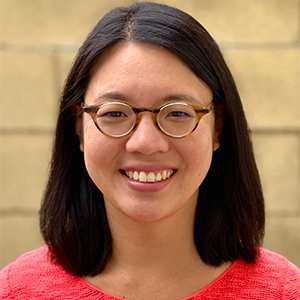
Kelley Fong – University of California, Irvine
Investigating Families: Motherhood in the Shadow of Child Protective Services (Princeton University Press, 2023)
Investigating Families: Motherhood in the Shadow of Child Protective Services unveils how the United States’ reliance on child protective agencies make motherhood precarious for people who are already marginalized. Using multi-site ethnography, interviews, and extensive qualitative analyses Professor Fong exposes the implications of depending on child protective services as a first-responder for families experiencing poverty and adversity. Fong focuses on how mothers experience the fear of child protective services even when contact with the agency never materializes. She emphasizes that, shrouded in the promise of assistance, child protective agencies use scare tactics like surveillance and investigation to maintain power over marginalized mothers. Her work paves the way for new approaches to helping families.

Ralph Grunewald – University of Wisconsin, Madison
Narratives of Guilt and Innocence: The Power of Storytelling in Wrongful Conviction Cases (NYU Press, 2023)
Narratives of Guilt and Innocence: The Power of Storytelling in Wrongful Conviction Cases investigates the role of narrative in convincing stakeholders in a justice system of “truths.”
Professor Grunewald uses wrongful conviction cases in the United States as exemplars for intersecting narratives that construct legal realities, even when those legal realities are objectively false. Yet the takeaway from the book is how the combination of legal, narratological, and comparative lenses elucidate the role of truth in justice systems, both in the United States and elsewhere. Grunewald expertly unfurls layers of legal elements with a keen eye toward revealing narrative structures and determinative effects for defendants charged with crimes.
Honorable Mention
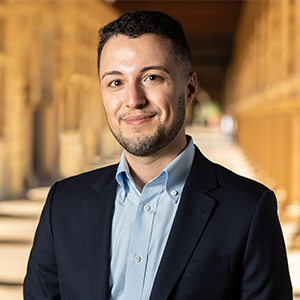
Asad L. Asad – Stanford University
Engage & Evade: How Latino Immigrant Families Manage Surveillance in Everyday Life (Princeton University Press, 2023)
Engage and Evade: How Latino Immigrant Families Manage Surveillance in Everyday Life explores how immigrant families in the United States navigate surveillance in their daily lives. Professor Asad points out that even though surveillance can often lead immigrant families to interacting with the criminal justice system in the United States, that there is hope that surveillance may also lead to societal inclusion. Asad uses a rigorous, mixed methods approach to collecting and analyzing data combining statistical analyses with ethnography and extensive interviews.
Past Winners
Year
Individual(s)
Affiliation
Book
Nominations Require:
- Nominators must be current LSA members.
- To stress the restriction stated above, books eligible for the Jacob Prize may be from any field of socio-legal scholarship except history; books with a significant historical focus should be submitted instead to the Association’s Hurst Prize.
- Only one single-authored work by the same author in a given year will be accepted. Two works by the same author will be accepted if one or both works are jointly authored.
- Books must be published in English, or be English translations of original works.
- Books submitted must have a copyright date (regardless of actual publication dates) during the calendar year prior to the award ceremony.
- Page proofs may be sent if the book will be published soon with the proper year’s date.
- Self-nominations are accepted.
- Copies of the book are required to be sent directly to the Herbert Jacob Book Prize Committee Members. We will reach out to the publishers of the nominated books and provide them with the addresses for the prize committees directly.
- OPTIONAL – A letter of support from the nominator, including a synopsis of the book.
All supporting documents must be submitted in English and be in .DOC, .RTF, or .PDF format.
PRIZE
James Willard Hurst Book Prize
The James Willard Hurst Prize is awarded annually (biennially prior to 2002) for the best work in socio-legal history published in the previous year. The field of socio-legal history is broadly defined to include the history of interrelationships between law and social, economic, and political change; the history of functions and impact of legal agencies, legislative and administrative as well as judicial; the social history of the legal profession; and similar topics. Self-nominations are accepted. Nominators must be current LSA members.
Textbooks, casebooks, and edited collections are not eligible for the award, but monographs will be considered. The Association seeks studies in legal history that explore the relationship between law and society or illuminate the use, function, and cultural meaning of law and society. The Association discourages submission of purely doctrinal studies in the evolution of appellate case law.
The responsibility of ensuring that a work is submitted for the most appropriate book prize rests with the nominator. As a rule of thumb, books that have a significant historical focus should be directed to the Hurst Prize, while other works of socio-legal scholarship should be directed to the Jacob Prize. A book submitted for both prizes may end up being considered for neither.
The award carries a cash prize of $500.
Current Winner
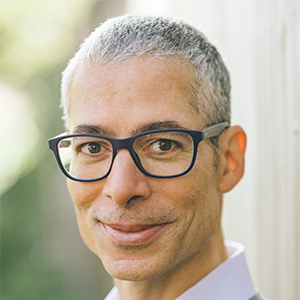
Dylan C. Penningroth – Berkeley Law School
Before the Movement: The Hidden History of Black Civil Rights (Liveright, WW Norton, 2023)
Penningroth’s Before the Movement masterfully achieves an impossible feat: it uses a wide and unwieldy archive alongside personal reflective narrative to offer a clear and compelling argument about law’s experience in the lived world. This book is at the core of what groundbreaking law and society historical scholarship is – it is engaging and accessible while expanding our understandings about an important topic, and it reflects deep and pain-staking research to bring alive archives that would otherwise go unnoticed. In bringing alive the “legal consciousness” of people in their everyday interactions of the law (i.e., mundane disputes and cases), Penningroth offers a more nuanced and fuller dimension to the history of Black civil rights in the United States before it was categorized as one. The committee was unanimous in their selection of this as the winner of the 2024 LSA Hurst Prize.
Honorable Mention
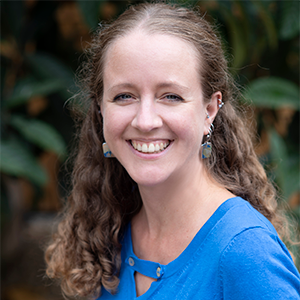
Janet Weston – London School of Hygiene and Tropical Medicine
Looking After Miss Alexander: Care, Mental Capacity, and the Court of Protection in Mid-Twentieth-Century England (McGill-Queen’s University Press, 2023)
Weston’s Looking After Miss Alexander takes an esoteric – but illustrative – case from the mid-twentieth century (1920s-60s) to consider the complexities of mental health law, incapacity, and presumptions about capacity. Committee members were unanimous in their admiration for its deeply engaging narrative and felt the book exemplified the possibilities of doing rich legal historical analysis from a singular case. The book packs a punch in its ability to use this seemingly small story to theoretically implicate larger questions about the legal system, the state, and the gendered politics of protection and care. It is also an excellent methodological illustration – both in its subject and subjectivity – and Weston’s thoughtful care in the deliberation and extensions possible with this unique (and at times, incomplete) archive will serve as important template for others doing similar work in legal history.
Past Winners
Year
Individual(s)
Affiliation
Book
Nominations Require:
- Nominators must be current LSA members.
- Books must be published in English, or be English translations of original works.
- Books submitted must have a copyright date (regardless of actual publication dates) during the calendar year prior to the award ceremony.
- Only one single-authored work by the same author in a given year will be accepted. Two works by the same author will be accepted if one or both works are jointly authored.
- Self-nominations are accepted.
- Copies of the book are required to be sent directly to the J. Willard Hurst Book Prize Committee Members. We will reach out to the publishers of the nominated books and provide them with the addresses for the prize committees directly.
- Page proofs may be sent if the book will be published soon with the proper year’s date.
- OPTIONAL – A letter of support from the nominator, including a synopsis of the book.
All supporting documents must be submitted in English and be in .DOC, .RTF, or .PDF format.
PRIZE
Article Prize
The Law and Society Association Article Prize recognizes exceptional scholarship in socio-legal studies for a journal article or chapter in an edited book. Articles may be published in any scholarly journal, including socio-legal journals, journals in other disciplines, and law reviews. Self-nominations are accepted.
The competition is open to all forms of law and society scholarship, to authors at any stage of their careers, and to authors from any country of origin.
The award carries a cash prize of $500.
Current Winners
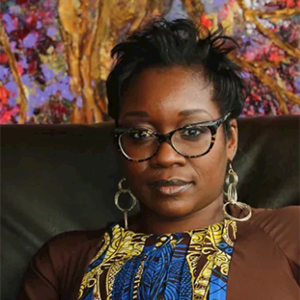
Bernadette Atuahene – University of Southern California Gould School of Law
Atuahene’s paper builds a theory of Stategraft to define and interrogate what happens when the state takes property from individuals in violation of state laws and human rights. Differentiating this from processes like eminent domain, Atuahene describes the predatory state and the role of Stategraft in reconceptualizing harm, the stability of democracy, and in its potential for social movements. Atuahene’s paper offers Stategraft as a new conceptual domain, ripe for exploration more broadly in law and society scholarship.
The committee was particularly impressed with how Atuahene’s paper deftly applied theoretical innovation to social problems, with one reviewer writing that the paper represented an innovative project with impressive theoretical and practical applications in the area of focus that does much to illuminate other significant issues of law and society as well. Reviewers also stressed the scope of the article and its potential to define the field of law and society more broadly.
A Theory of Stategraft. New York Law Review, 98(1), 1-48
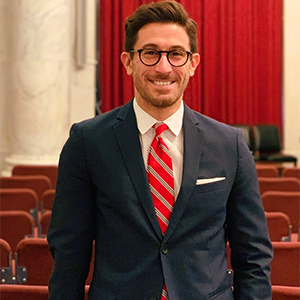
Ari Ezra Waldman – University of California, Irvine-School of Law
Waldman’s paper considers how the systematic erasure of transgender, nonbinary, and gender- nonconforming individuals is not merely a consequences of technology – but is also a product of law. Waldman analyzes how legal mandates, forms, and other limitations embedded in the fabric of law shape data. The paper ends with principles for reform and offering a path forward.
Reviewers praised the article as exceptionally engaged with law and society scholarship and frames, a focus that allows the paper to work well as both an empirical article and a legal argument. Reviewers also complimented the far-reaching implications of the work even beyond gender and into other automated categorization processes. Once again, the reviewers were struck by the innovation inherent to Waldman’s scholarly project.
Gender Data in the Automated Administrative State. Columbia Law Review, 123(8), 2249-2320
Past Winners
Year
Individual(s)
Affiliation
Article
Nominations Require:
- Nominators must be current LSA members.
- Article copies submitted to the committee must be in English.
- Only one single-authored work by the same author in a given year will be accepted. Two works by the same author will be accepted if one or both works are jointly authored.
- The article must have a publication date within the two calendar years prior to the awards ceremony. Articles will only be considered once within the two-year period of eligibility.
- The full article, including full bibliographic citation.
- OPTIONAL – A letter of support from the nominator, including an abstract of the article.
All supporting documents must be submitted in English and be in .DOC, .RTF, or .PDF format.
PRIZE
John Hope Franklin Prize
The John Hope Franklin Prize is awarded annually by the Law and Society Association to recognize exceptional scholarship in the field of Race, Racism and the Law.
The Franklin Prize is awarded for an article published in the two calendar years prior to the award year. The competition is open to all forms of law and society scholarship, to authors at any stage of their careers, and to authors from any country of origin. Articles may be published in any scholarly journal, including socio-legal journals, journals in other disciplines, and law reviews, or may be a chapter in a book volume. Co-authored articles, and self-nominations, may be submitted for consideration.
While there is no limit on the number of articles one may nominate, an article may not be considered for the John Hope Franklin Prize and another LSA award. The decision in determining whether an article should be submitted for consideration for the Franklin Prize, rather than another LSA award, rests with the article’s nominator in consultation with the author.
The award carries a cash prize of $500.
Current Winners

I. India Thusi – Indiana University, Bloomington
India Thusi (Indiana University Bloomington Maurer School of Law) is the Charles L. Whistler Faculty Fellow, Senior Scientist at the Kinsey Institute and Professor of Law. Thusi’s “The Racialized History of Vice Policing” provides an enduring scholarly contribution at the intersection of policing, abolition, and legal history. Thusi adopts an abolitionist framework, and provides a much-needed analysis of vice policing as a mechanism to sustain racism and racialized marginalization. This well-written and compelling article is the beginning of a rich and important project that will continue to open up new avenues in research on race, racism, and law for years to come.
The Racialized History of Vice Policing. UCLA Law Review, 69(1576), 1-45.
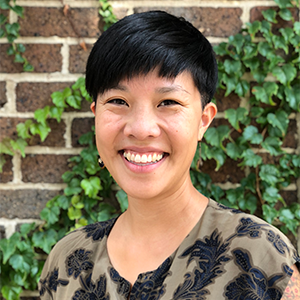
katrina quisumbing king – Northwestern University
katrina quisumbing king (Department of Sociology at Northwestern University) is an Assistant Professor of Sociology. King’s “The Structural Sources of Ambiguity in the Modern State: Race, Empire, and Conflicts over Membership” offers compelling empirical evidence demonstrating how state actors and activities use ambiguous classifications of Filipinos simultaneously as citizens, nationals, and aliens to main national and imperial conflicts. King’s article is well researched and draws attention to how seemingly contradictory classifications still fit together as reflections of statecraft and racialization.
The Structural Sources of Ambiguity in the Modern State: Race, Empire, and Conflicts over Membership. American Journal of Sociology, 128(3), 769-819.
Past Winners
Year
Individual(s)
Affiliation
Publication
Nominations Require:
- Nominators must be current LSA members.
- Article copies submitted to the committee must be in English.
- The article must have a publication date within the two calendar years prior to the awards ceremony. Articles will be considered only once during the two-year period of eligibility.
- Only one single-authored work by the same author in a given year will be accepted. Two works by the same author will be accepted if one or both works are jointly authored.
- The full article, including full bibliographic citation.
- OPTIONAL – A letter of support from the nominator, including an abstract of the article.
All supporting documents must be submitted in English and be in .DOC, .RTF, or .PDF format.
PRIZE
Dissertation Prize
The LSA Dissertation Prize is awarded annually to a dissertation written within 12 months of the prize year that best represents outstanding law and society scholarship.
The award carries a cash prize of $500.
Current Winner

Dr. Inbar Peled – Osgoode Hall Law School-York University
Inbar Peled of York University in Toronto, Ontario, has been selected as the winner of this year’s Dissertation Prize. Her dissertation, “Professionalizing Discrimination: Legal Actors and The Struggle against Racialized Policing in Multicultural Societies,” addresses the important and timely topic of discriminatory policing and the various players involved in both committing and combatting discriminatory policing and police brutality. Specifically, her dissertation is an ethnography that explores how defense attorneys, prosecutors, and judges both comply with and resist discriminatory policing. More broadly, her dissertation investigates how and why legal institutions contribute to systemic discrimination through their relational dynamics.
Ms. Peled’s dissertation offers an impressive mixed-methods study to explore “professionalized discrimination”—a term coined by Ms. Peled to describe how legal actors use professional tropes to “cover” the tacit scripts associated with their nonprofessional selves, drawing on political ideology, neoliberal scripts, and strategies of self-management, in way that allow discrimination to persist. Ms. Peled’s dissertation exposes not only that lawyers, like all individuals, are influenced by race and racism, but also that legal norms and rules exacerbate the consequences of race, racism, and police violence.
Ms. Peled’s dissertation represents the epitome of law and society scholarship. Her mixed-methods approach includes analyzing legal cases, scenes from courts, and in-depth interviews with legal professionals. Ms. Peled’s dissertation conveys a masterful command of the law and society scholarship and the impressive range of methodological approaches used in her dissertation makes clear that her work will be valuable across disciplines and societies coping with similar issues.
Honorable Mention

Victoria Piehowski – SUNY Buffalo
Victoria Piehowski of the University of Minnesota has been selected to receive an honorable mention for this year’s Dissertation Prize. Ms. Piehowski’s dissertation, “The Politics of Trauma: Establishing and Expanding Veterans Treatment Courts in Minnesota,” uses a mixed-methods approach to analyze how courts employ scientific research and narratives to distinguish between different types of “violent offenders.”
To explore these issues, Ms. Piehowski uses as a case study the establishment and expansion of Veterans Treatment Courts in Minnesota. These courts combine various actors, including prosecutors, judges, and defense attorneys, with clinical professionals from the VA or VA hospitals to provide veterans with treatment-focused supervision instead of incarceration. The Minnesota courts, although similar to other treatment courts like drug courts, go further, arguing that veterans accused of violent crime particularly merit rehabilitation and significant legal incentives.
Ms. Piehowski conducted extensive historical and ethnographic research, ultimately showing how legal professionals, advocates, and politicians use scientific discourse about trauma to differentiate veterans convicted of violent crimes from other types of convicted persons, and to deem veterans as worthy of rehabilitative services in their own specialized court. Ms. Piehowski’s dissertation helps us understand why courts may take a less punitive approach to violence in the context of veterans, exposing how the state typically views veterans—typically coded as white—are traumatized, honorable, and deserving of second chances. This contrasts with “regular” violent defendants—more likely to be coded as Black—who are routinely deemed dishonorable and unworthy of leniency, even though the vast majority of them have also experienced trauma.
Ms. Piehowski’s study is thus important for a number of reasons. Although her case study focuses on veterans, the implications of her work are much broader, showing how the use of trauma- informed narratives can allow the courts, and society, to deem all people convicted of violent crimes after trauma as treatable and worthy of dignity. Her dissertation is a valuable contribution to ongoing scholarly and policy debates about punishment and incarceration. Existing debates often focus on reforms for non-violent criminals, but Ms. Piehowski takes it further, raising questions about how we should punish people convicted of violent crimes, particularly when there is a history of trauma.
Past Winners
Year
Individual(s)
Affiliation
Paper
Nominations Require:
- Nominators must be current LSA members
- The dissertation must have been filed with the institution of higher education (U.S or non-U.S) during the calendar year prior to the award ceremony.
- The full dissertation in English; translations from other languages into English are welcome.
- An abstract of the dissertation, also in English.
- OPTIONAL – One letter of nomination from a regular member of the Law and Society Association.
- No self-nominations or student-member nominations are accepted.
All supporting documents must be submitted in English and be in .DOC, .RTF, or .PDF format.
PRIZE
Graduate Student Paper Prize
The LSA Graduate Student Paper Prizes are awarded annually to a graduate student whose nominated papers, written within 18 months of the prize year, best represent outstanding law and society research.
The award carries a cash prize of $500.
Current Winner
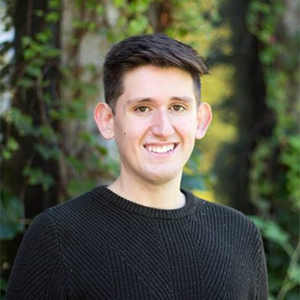
Kris Rosentel – Northwestern Sociology
Beyond “Walking While Trans:” Transgender Discrimination, Gendered Spatial Stigma, and Biased Police Deployment in Sex Work Arrests
In this paper, Rosentel argues that “social scientists have identified two primary mechanisms through which police discrimination operates: bias in officers’ use of discretion and differential deployment of police resources and tactics across space. In contrast to research on racial disparities, emerging research assessing gender and sexual discrimination in policing has near exclusively focused on discretionary rather than deployment explanations.” In this work, Rosentel uses “the case of transgender discrimination in sex work arrests,” to show that “spatial stigma and bias in police deployment can play a central role in producing gender-based sociolegal inequalities.”
Rosentel’s quantitative study, which analyzed a dataset of over 1200 sex work-related arrests over a four-year period by the Chicago Police Department, suggests that “discrimination is primarily driven by disproportionate deployment of sting operations to spaces where trans feminine sex workers tend to concentrate for sex work.” Rosentel refers to this as “congregating while trans.” As Rosentel notes, “both ‘walking while trans’ and ‘congregating while trans’ can be linked to broader state efforts to control gender and sexuality…” Among the reasons for this is because they “disrupt the public-private dichotomy, which relegates acceptable expressions of feminine sexuality to the domestic sphere.”
The Committee unanimously ranked this paper as exceptional and fitting within the law and society tradition. The paper involves statistical modeling and mapping/spatial analysis. The Committee found the paper to be rigorous in both its design scale and its analytical scope. The work is innovative, responsive to an important sociolegal concern, and insightful. Committee members scored this paper higher than all other nominations in this category. Committee members agreed that the paper articulates a clear contribution to existing scholarly literature on policing of trans sex workers. The Committee was also very impressed by the novelty and sophistication of the original dataset that Rosentel constructed from a variety of sources, including FOIA requests. The Committee believes this paper to be a meaningful contribution to law and society scholarship and worthy of the Graduate Student Paper Prize.
Past Winners
Year
Individual(s)
Affiliation
Paper
Nominations Require:
- Only non-student members of the Law and Society Association may make nominations for the Graduate Student Award. No self-nominations are accepted.
- The paper must have been submitted within the two calendar years prior to the awards ceremony by a matriculated graduate or graduate professional student at any U.S. or non-U.S. institution of higher education. Papers originally written for coursework within this same time period and subsequently published are still eligible for nomination. Papers are only considered once within the two-year period of eligibility.
- No instructor may nominate more than two student papers for the award.
- Only one single-authored work by the same author in a given year will be accepted. Two works by the same author will be accepted if one or both works are jointly authored.
- In submitting the paper for award consideration, the nominator must include the date and title of the course for which the paper was written.
- Submissions must be in English; translations from other languages into English are welcome.
- The paper must be double-spaced; may not exceed 18,000 words in length, including notes and references; and must be in a minimum of 12 point font.
- OPTIONAL – Nominators can include a letter of support describing the merits of the student paper they are submitting.
All supporting documents must be submitted in English and be in .DOC, .RTF, or .PDF format.
PRIZE
Undergraduate Student Paper Prize
The LSA Undergraduate Student Paper Prizes are awarded annually to an undergraduate student whose nominated papers, written within 18 months of the prize year, best represent outstanding law and society research.
The award carries a cash prize of $500.
Current Winner

Sanjana Manjeshwar – University of California, Berkeley
“Agreements” in Name Only: How Workers Understand Mandatory Arbitration Clauses and Class Action Waivers in Employment Contracts
This paper, Sanjana’s Honors Thesis, examines the important concern of meaningful consent to mandatory arbitration clauses. As Professor Albiston, her nominator explains, “Sanjana became interested in mandatory arbitration clauses because they raise questions about power, meaningful consent, and how market transactions obscure coercion.” The paper explores how “power relations between employers and workers make it difficult to refuse to sign arbitration agreements that are a condition of employment.” Sanjana’s thesis unfolds the tensions in mandatory arbitration clauses that stretch the meaning of consent beyond its ethical and moral limits. As Professor Albiston writes, Sanjana’s project “investigates how well employees understand arbitration clauses, whether adding explanatory language improves employees’ understanding of what mandatory arbitration clauses mean, whether employees understand they give up rights by signing these clauses, and employees’ opinions about the fairness of mandatory arbitration clauses.” To tackle these issues and explore these questions, Sanjana engages a survey experiment, teasing out how clarity of language including “plain-English explanatory language” at the conclusion of an arbitration clause contributes to better understanding and “decreases…willingness to agree to it.”
This is an exceptionally well-written paper, beautifully articulated, and extremely relevant to matters of law and society. To quote Professor Albiston, “it follows the law and society tradition of studying the law on the ground as workers experience it rather than focusing on the law on the books…”
We find this paper to be an outstanding contribution and worthy of the Undergraduate Paper Prize.
Past Winners
Year
Individual(s)
Affiliation
Paper
Nominations Require:
- Only regular LSA members and graduate student LSA members who have received the nominated papers while working as lecturers or teaching assistants may nominate papers for the Undergraduate Student Award. No self-nominations are accepted.
- No instructor may nominate more than two student papers for the award.
- Only one single-authored work by the same author in a given year will be accepted. Two works by the same author will be accepted if one or both works are jointly authored.
- The paper must have been submitted within the two calendar years prior to the awards ceremony by a matriculated undergraduate student at any U.S. or non-U.S. institution of higher education including two-year community colleges. Papers originally written for a class within this same time period and subsequently published are still eligible. Papers are only considered once within the two-year period of eligibility.
- In submitting the paper for award consideration, the nominator must include the date and title of the course for which the paper was written.
- Submissions must be in English; translations from other languages into English are welcome.
- The paper must be double-spaced; may not exceed 18,000 words in length, including notes and references; and must be in a minimum of 12 point font.
- OPTIONAL – Nominators can include a letter of support describing the merits of the student paper they are submitting.
All supporting documents must be submitted in English and be in .DOC, .RTF, or .PDF format.
PRIZE
International Prize
The Law and Society Association International Prize is awarded annually to a scholar, normally resident outside the United States, in recognition of scholarship that has contributed significantly to the advancement of knowledge in the field of law and society. It is not a book prize, but is instead given in recognition of a body of scholarly work.
The award carries a cash prize of $500.
Current Winner
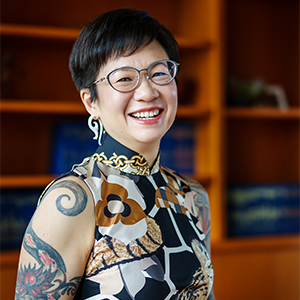
Lynette J. Chua – National University of Singapore
The committee is pleased to present the International Prize award to Dr. Lynette Chua. The committee was extremely impressed by Dr. Chua’s significant publication record in the fields of legal mobilization and legal consciousness as well as her dedication to the advancement of knowledge through enthusiastic and unwavering service work. As one nominator wrote, “It is no exaggeration to say that [Dr. Chua] is a leading figure in the field of law and society”
Dr. Lynette Chua has published 3 books and dozens of influential articles that are widely cited globally. Dr. Chua’s first book, Mobilizing Gay Singapore, received the Distinguished Book Award of the American Sociological Association and was a finalist for the European Southeast Asian Studies Association Book Prize. Her second book, The Politics of Love in Myanmar, received the Asian Law and Society Association Distinguished Book Award and an honorable mention for the Asian Studies Association Sociology of Human Rights Gordon Hirabayashi Book Award. Dr. Chua’s publications, according to one nominator, have “helped develop sociolegal scholarship in the wider Asian context and made that work relevant to rethinking law and society research in the United States and European contexts.”
Dr. Chua has conducted ethnographic research in multiple countries and regions, including in Singapore, Taiwan, Mainland China, Vietnam, Myanmar, and in countries in Southeast Asia. However, studying the legal mobilization of rights for LGBTQ+ people in these states makes for a precarious research agenda. Several nominators commented on the level of trust that would be required. One nominator characterized Dr. Chua’s approach to research as “ethnographic sensitivity that deeply respects how everyday legal actors understand their political activism through the prism of personal lives and identities.”
In addition to her scholarship, Dr. Chua has undertaken extensive service work in the field of law and society. She has served in multiple roles for the Law and Society Association, including serving as Trustee, after securing the most votes for that year, serving on the International Activities Committee, the Junior Scholars’ Workshop Committee, the Audit Committee, the Professional Development Committee, the International Scholarship Award Committee, the Annual Meeting Program Committee, and serving as Co-Chair of the Law & Emotions Collaborative Research Network and the Law & Social Movements Collaborative Research. And that’s just LSA. Dr. Chua has also served as the President of the Asian Law and Society Association, and through the ALSA, Dr. Chua ran training workshops, mentoring more than 50 junior scholars and advanced doctoral students working in the area of law and society in Asia. As one nominator wrote, this work “help[ed] train the next generation of scholars to conduct cutting- edge law and society research within the wider Asian context.”
Dr. Chua has contributed to the advancement of knowledge in the field of law and society not only through her own research but also by helping to support, educate and mentor the next generation of scholars. One nominator summed up Dr. Chua’s record beautifully, exclaiming, Lynette Chua “has been one of the most active figures in our field, making significant and indeed transformative contributions to law and society scholarship. Furthermore, she has made extraordinary contributions to the development of law and society research in Asia over the past decade through her service to the LSA and the Asian Law & Society Association (ALSA) and by organizing and directing numerous workshops for young law and society scholars of Asia from throughout the region and the world.
Past Winners
Year
Individual(s)
Affiliation
Nominations Require:
- Normally offered to a scholar in residence outside the United States
- A letter of support from the nominator
- The candidate’s curriculum vitae
- 1 or 2 additional letters of support will be accepted, but are not required.
All supporting documents must be submitted in English and be in .DOC, .RTF, or .PDF format.
AWARD
Stan Wheeler Mentorship
The Stan Wheeler Mentorship is given each year to a member of the Law and Society community who is regarded by their peers and students as an outstanding mentor for graduate, professional, or undergraduate students working on issues of law and society. Self-nominations are accepted.
The award carries a cash prize of $500.
Current Winners

Charles Epp – University of Kansas
Professor Charles Epp received his PhD in Political Science from the University of Wisconsin- Madison and moved on from his time on the faculty of Indiana University to his current home at the University of Kansas, where he is a University Distinguished Professor. A Fellow of the National Academy of Public Administration, Professor Epp has authored a number of classic books on rights in the United States. In addition to winning multiple academic prizes, his scholarship has attracted popular attention and citations in media such as the New York Times, Washington Post, Los Angeles Times, USA Today, NPR, Univision, and others. This publicity for important sociolegal findings is a result of Professor Epp’s deep dedication to public policy issues – in addition to his longstanding commitment to rigorous empirical scholarship on law and society. His service to the field has included two stints on the Executive Committee of LSA (once as Secretary of the Association), ongoing work as co-editor of an important law-and- society book series at the University of Chicago, and chairing or serving on too many LSA and APSA committees to list here – many of which centered on graduate students.
His devotion to undergraduate and graduate students is evident in the multiple teaching awards he has received. He has also exhibited extraordinary generosity in his mentoring of graduate students, who wrote in a resounding chorus of appreciation for his efforts on their behalf over many years. Our committee was especially impressed by the unusual number of testimonials from students whose journeys were unconventional due to hardship and to detours that might have ended their engagement with traditional academic mentors. Non-traditional mentees described receiving Professor Epp’s support even before applying to graduate school, when facing difficulties thinking through the application process from outside of the more regular path straight out of undergraduate school. Students whose trajectories were disrupted by personal and family difficulties received solid, ongoing encouragement from his mentorship that kept them from giving up. Compelling stories from the many letters we received described hands-on support that lasted throughout and after graduate school.
A theme that recurred in those letters was Professor Epp’s humility and sensitivity as he worked with mentees who describe themselves as coming from backgrounds that made graduate school especially challenging: first-generation, international, racially minoritized, and older working students all wrote heartfelt accounts of the way this renowned scholar made them feel accepted and valued. As one nominator explained, “He treated me as a colleague and a partner, rather than a subordinate or student.” Another student described taking Chuck to an inner-city neighborhood where she was an insider, as part of a collaborative project. She noted how difficult it was for outsiders to obtain the trust of people in that community, but that he succeeded in doing so by treating everyone with “the utmost dignity and respect,” approaching them with “compassion and grace while also maintaining research rigor and integrity.”
Another theme appearing in many of the letter-writers’ accounts was Professor Epp’s selflessness and lack of ego in dealing with students whose dissertation committees he never chaired or served on. Despite receiving intensive help from him during her early years in graduate school, one mentee made a difficult decision to select another professor as her dissertation chair. She describes Professor Epp’s response to this decision as “patient and kind,” including an “assurance that he would always be my mentor – in whatever capacity I decided.” Another mentee explained that “Chuck Epp has never been my formal advisor, I was not his Masters or PhD student,” but that “on multiple occasions over many years he has volunteered his time to review my work, talk with me about my projects, and suggest other ways he can support my career.” She concluded that she wished that “all young women in political science department had senior scholars” who would similarly treat them “as having important, worthwhile ideas that should be out there in academic scholarship.”
Chuck Epp’s intellectual guidance was formative for his mentees. He encouraged them to become familiar with sociolegal work and to present at the Law & Society Annual Conference. He inspired by example, conveying his “immense passion for his own work and his talent for rigorous, innovative, exciting research.” This committee agrees with Professor Epp’s students that he is a superb example of the values that the Stan Wheeler Mentorship Prize is designed to honor.
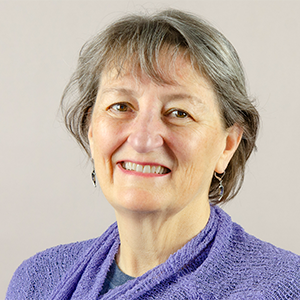
Marianne Constable – University of California, Berkeley
Professor Marianne Constable received her JD from Berkeley Law School and her PhD from the Jurisprudence and Social Policy Program at the University of California-Berkeley. She is a member of the faculty in the Berkeley Department of Rhetoric, where she has served as Department Chair as well as Chair in Undergraduate Education. She has received prizes in mentoring from Berkeley at both the graduate and undergraduate levels, in addition to serving repeatedly in graduate student advising and admissions, in undergraduate advising, and as assigned mentor to junior faculty. She regularly helps in Berkeley’s undergraduate research apprentice program, along with numerous other “extra” contributions to students at all levels in her home institution. In addition to myriad national and international honors for her scholarship, Professor Constable has received national and international recognition for pedagogical contributions, accepting invitations to work with graduate students from Hong Kong to Australia to Canada. She has also supported graduate students through work with professional associations such as LSA; the West Coast Law & Society Retreat; and the Association for the Study of Law, Culture, and Humanities.
In her service to LSA, Professor Constable has participated in the Graduate Student Workshop four times, in addition to co-chairing Graduate Student Activities at the international LSA meeting in 2012. She was the LSA delegate to the ACLS for two separate three-year terms, as well as serving on the Board of Trustees three times (as a member of the Executive Committee for two of those terms and Treasurer once). She took an active role in the LSA Summer Legal Institute for junior scholars on five separate occasions and chaired the Dissertation Prize Committee on another occasion. While maintaining a vigorous schedule of research and high- level scholarly production, she has also accrued an astonishing list of service contributions both within LSA and to numerous other scholarly organizations, journals, workshops, networks, granting agencies, publishers, and similar intellectual efforts.
In multiple nomination letters, Professor Constable’s mentees charted her influence – in one case from undergraduate school, through graduate training, to employment as a professor. This letter described a sweeping arc of mentorship, including seminars and working group meetings in which “law students, graduate students, professors, and practitioners came together to discuss and critique new scholarship in the field of law and society.” Another letter describes mentoring starting at the beginning of graduate school and reaching 20 years beyond the PhD through to the present time. From dissertation to first published book and further on, this former student described an intensive intellectual engagement with Professor Constable that “always had the right combination of frankness and encouragement.” Yet another former student described a long-term mentoring relationship during which he “learned to trust Marianne” despite encountering a sometimes difficult environment in graduate school. He further explained that her “influence extended beyond the confines of my original academic discipline” (philosophy), when she “encouraged me to explore the realm of Law and Society” and to “participate in the LSA conference.” This afforded him a wider intellectual world, as well as a new scholarly community.
The committee notes not only the many examples of individual mentoring detailed in summaries of Professor Constable’s efforts, but also, as one letter-writer deftly put it, her “active role in building institutional infrastructure to support graduate research in the field.” Her letters describe her exacting intellectual guidance, paired with very practical advice and interventions at multiple structural levels within her university and the field: “…it’s not the extent, but the quality and the personal impact of Marianne’s mentorship that distinguish her contribution to the law and society community. Anyone who has studied with Marianne will be familiar with her unique blend of encouragement, tough love, pragmatism and intellectual rigor.” The letters we received are replete with detailed recollections of this blend, from her advice to one student “to embrace messy writing in the early stages of thinking,” to the mentee who “kept all the papers that she has marked up over the years” with their inspired attention to small and large aspects of the manuscripts. Professor Constable has clearly inspired her mentees to pass on her generosity and precision as they moved through their careers. The committee is pleased to recognize this legacy with the 2024 Wheeler Prize.
Past Winners
Year
Individual(s)
Affiliation
Nominations Require:
- A letter of support from the nominator, describing the nominee’s mentoring skills and his/her record as a “member of the Law and Society community”.
- The candidate’s curriculum vitae.
- 2 – 4 additional letters of support from former students, colleagues, collaborators, or others who have experienced the nominee’s skills as a mentor.
All supporting documents must be submitted in English and be in .DOC, .RTF, or .PDF format.
AWARD
Ronald Pipkin Service Award
The Ronald Pipkin Service Award is awarded to the Law and Society Association member who has demonstrated sustained and extraordinary service to the Association. Forms of service that will be awarded should be independent of elected office and appointed roles, although those roles can be considered as part of a larger record.
The award carries a cash prize of $500.
Current Winner
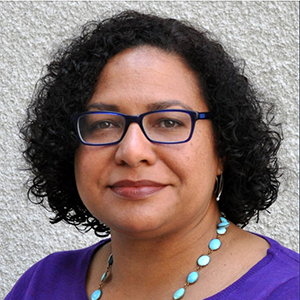
Kaaryn Gustafson – University of California, Irvine School of Law
The Law and Society Association is honored to present the Ronald Pipkin Service Award to Professor Kaaryn Gustafson. The Pipkin Prize is awarded to an individual whose dedication and efforts have significantly enriched the Law and Society community. We could not be more pleased this year as we celebrate the extraordinary contributions of Professor Gustafson. She is a distinguished member of the Law and Society Association whose membership and service spans nearly three decades. Professor Gustafson has demonstrated an unwavering commitment to service that goes far beyond the call of duty.
Professor Gustafson’s achievements span law, the social sciences, and policy spheres. She is a Professor of Law and Director of the Center on Law, Equality, and Race at UC Irvine Law School, has been a beacon of intellectual thought, leadership, and innovation. She is also gracious, kind, compassionate, and courageous. Her record of service is unparalleled, contributing in roles that span from the Board of Trustees to various prize committees, and notably, she is a long-standing chair of the Diversity Committee. Professor Gustafson’s service to LSA extends beyond the roles she graciously agrees to accept and perform. What is so notable is the depth and quality of her engagement is more than we deserve.
Her approach to service is characterized by a positive spirit, a belief in the possibility of change, and a pragmatic approach to challenges. She has not only shared her expertise with us, but also her humanity. Kaaryn’s creativity and initiative have led to significant advancements within the Association, particularly in promoting diversity and inclusion. Twenty years ago, when the idea for the Law and Society Association Minority Graduate Student Doctoral Fellowships was still nascent and unfunded, Kaaryn took it upon herself to help raise the necessary resources to grow this initiative. Her efforts have borne fruit, as the program celebrates two decades of success, having supported numerous outstanding students who have gone on to make their mark.
Kaaryn’s commitment to inclusivity extended to organizing events such as diversity dances, brunches, and cocktail parties, not only to raise funds but to foster a sense of community and belonging. These events kept the idea alive, sustaining these critical programs even before institutional support was secured. Kaaryn essentially made up a job for herself! She volunteered and went to any number of locations that LSA was considering hosting our Annual Meeting to navigate the space as someone using a wheelchair. No matter what a hotel tells you or what you think you see, there is no substitute for this kind of on-site dedication to accessibility. Her behind-the-scenes advocacy for accessibility has had a lasting impact on the association, ensuring our events are inclusive and welcoming to all members.
Beyond her service roles, Kaaryn Gustafson is an esteemed scholar and mentor. Her contributions to scholarship have been recognized with multiple LSA prizes, and her influence extends through the generations of students and junior faculty she has advised, nominated, and mentored. Kaaryn’s dedication to fostering emerging scholars underscores her commitment to the future of the Law and Society Association.
In every aspect of her involvement, Kaaryn Gustafson embodies the spirit of the Ronald Pipkin Service Award. Her extraordinary service, carried out with an endless supply of creative ideas, has significantly shaped the Law and Society Association. We are profoundly grateful for Kaaryn’s contributions and are delighted to honor her with this award. She exemplifies all that we wish for in a Pipkin Prize awardee.
On behalf of the executive committee and the entire Law and Society Association, we extend our heartfelt thanks and congratulations to Kaaryn Gustafson. Your remarkable legacy of service inspires us all.
Past Winners
Year
Individual(s)
Affiliation
Nominations Require:
- Nominees must be current members of the Law and Society Association, however, nominators are not required to be members.
- A letter of support describing the nominee’s demonstrated, sustained and extraordinary service to the Association.
- 1 or 2 additional letters of support will be accepted, but are not required.
All supporting documents must be submitted in English and be in .DOC, .RTF, or .PDF format.
AWARD
Legacy Award
The LSA Legacy Award honors people whose contributions significantly helped to develop the Association through sustained commitment to the Association’s mission and legacy, extensive service, or scholarly publications that made a lasting contribution to the Association.
Current membership in the Association is not necessary.
Current Winners (from 2021)
Rosann Greenspan
University of California-Berkeley
Rosann Greenspan is the former executive director of Berkeley’s Center for the Study of Law and Society, with which she was affiliated for 20 years until her retirement in 2019. She has also held positions as research officer at the Law Reform Commission of Canada, postdoctoral fellow at Stanford University, US Supreme Court fellow, research director at the Police Foundation in Washington, DC, and lecturer in Legal Studies at U.C. Berkeley, inter alia. Her most recent publication is the edited volume, The Legal Process and the Promise of Justice: Studies Inspired by the Work of Malcolm Feeley, edited by Rosann Greenspan, Hadar Aviram and Jonathan Simon (Cambridge University Press, 2019).
Born and raised in Niagara Falls, Ontario, Dr. Greenspan graduated with her B.A. magna cum laude in Yale University’s first class of undergraduate women. She earned an M.A. from the Centre for Criminology at the University of Toronto, and an M.A. and Ph.D. in the interdisciplinary Jurisprudence & Social Policy Program in U.C. Berkeley School of Law. Besides Ontario, where she returns regularly, she has also lived in Quebec and British Columbia, and briefly in the Yukon.
Mari Matsuda
University of Hawaiʻi at Mānoa
From her earliest academic publications, Professor Matsuda has spoken from the perspective and increasingly used the method that has come to be known as critical race theory. She is not only one of its most powerful practitioners, but is among a handful of legal scholars credited with its origin. Her first article, “Liberal Jurisprudence and Abstracted Visions of Human Nature,” published in 1986, boldly—albeit respectfully—took on liberal legal philosopher John Rawls’ theory of justice and in doing so announced her own philosophical orientation. Matsuda concludes her piece with an idea that informs much of her work in subsequent years: “There is, as Rawls suggests, a place called Justice, and it will take many voices to get there.” The voices she has in mind are the voices that have been left out, “outsider” voices speaking as individuals and as members of their communities of origin, voices of subordinate peoples. Voices from the bottom, Matsuda believes—and critical race theory posits—have the power to open up new legal concepts of even constitutional dimension. Paradoxically, bringing in the voices of outsiders has helped to make Matsuda’s work central to the legal canon. A Yale Law School librarian ranked three of her publications as among the “top 10 most cited law review articles” for their year of publication. Judges and scholars regularly quote her work.
Louise Trubek
University of Wisconsin Law School
Louise G. Trubek is an Emerita Professor at the University of Wisconsin Law School. A graduate of the University of Wisconsin and the Yale Law School, Louise is an active scholar in the fields of public interest law around the world, social justice advocacy, clinical legal education and the legal profession. Her scholarship and teaching also includes studies of regulation and governance in the European Union and the United States. Louise’s current research includes co-editing with Scott Cummings and Fabio Sa e Silva a book on the pro-bono movement worldwide: Global Pro Bono: Causes, Consequences and Contestation (Cambridge University Press, forthcoming 2020). She also co-authored with Prof. Luz Herrera “The Emerging Legal Architecture for Social Justice” published in 44 NYU Rev. L & Soc. Change 355 (2020). Other publications in the field include “Social Justice Advocacy and Innovation: The Wisconsin Center for Public Representation 1974-Present” and “Transformations in Health Law Practice: The Intersection of Changes in Healthcare and Legal Workplaces” (with Barbara Zabawa and Paula Galowitz).
Charles Lawrence
University of Hawai’i at Mānoa
Professor Lawrence joined the William S. Richardson School of Law in 2008 from Georgetown. He began his teaching career at the University of San Francisco in 1974, was a tenured professor at Stanford and Georgetown, and has visited several other schools, including Harvard, Berkeley, UCLA, and the University of Southern California. Professor Lawrence is best known for his prolific work in antidiscrimination law, equal protection, and critical race theory. His most recent book, We Won’t Go Back: Making the Case for Affirmative Action (Houghton Mifflin, 1997), was co-authored by Professor Mari Matsuda. Professor Lawrence received the University of San Francisco School of Law’s Most Distinguished Professor Award; the John Bingham Hurlburt Award for Excellence in Teaching, presented by the 1990 graduating class of Stanford Law School; and the Society of American Law Teachers national teaching award. He has been awarded honorary doctorates by Haverford College, Georgetown University, most recently, In December of 2019, he also received an honorary Doctorate from Nelson Mandela University in South Africa. He served as a member of the District of Columbia Board of Education and on many other public interest boards.
Setsuo Miyazawa
UC Hastings Law
Setsuo Miyazawa is a legal sociologist who received LL.B., LL.M., and S.J.D. from Hokkaido University and M.A., M.Phil., and Ph.D. in sociology from Yale. Professor Miyazawa has a wide range of research interests, including police and criminal justice, legal ethics and public interest lawyering, legal education, and corporate legal practice; he received his doctoral degree in Japan with a study on police, while receiving his American doctoral degree with a study on corporate legal departments. He has published or edited more than a dozen books in Japanese and English. His first English book, Policing in Japan (SUNY Press, 1992), received the 1993 Distinguished Book Award of the Division of International Criminology of the American Society of Criminology. He has also been active in the Law and Society Association (LSA) in the US, twice serving on its Board of Trustees. He co-founded the Collaborative Research Network 33 in East Asian Law and Society in the LSA in 2008 and received the International Scholarship Prize from the LSA in 2014. He co-founded the Section on East Asian Law and Society in the AALS in 2015 and the Asian Law and Society Association (ALSA) in 2016. He was the founding President of the ALSA in 2016 and 2017.
Past Winners
YEAR
INDIVIDUAL(S)
2021
Rosann Greenspan
Mari Matsuda
Louise Trubek
Charles Lawrence
Setsuo Miyazawa
2020
Carroll Seron
Keith Hawkins
Malcolm M. Feeley
Bryant Garth
David B. Wilkins
Neil Vidmar
2019
Richard L. Abel
Kitty Calavita
David Engel
William Felstiner
Lawrence Friedman
Marc Galanter
Joel Handler
Robert A. Kagan
Samuel Krislov
Herbert Kritzer
Jack Ladinsky
Richard Lempert
Felice Levine
Laura Nader
Stewart Macaulay
Lynn Mather
Frank Munger
Doris Marie Provine
Jerome H. Skolnick
Joyce Sterling
David M. Trubek
Nominations Require:
- A nomination letter signed by at least 2 LSA members
- OPTIONAL: other supporting materials
All supporting documents must be submitted in English and be in .DOC, .RTF, or .PDF format.

